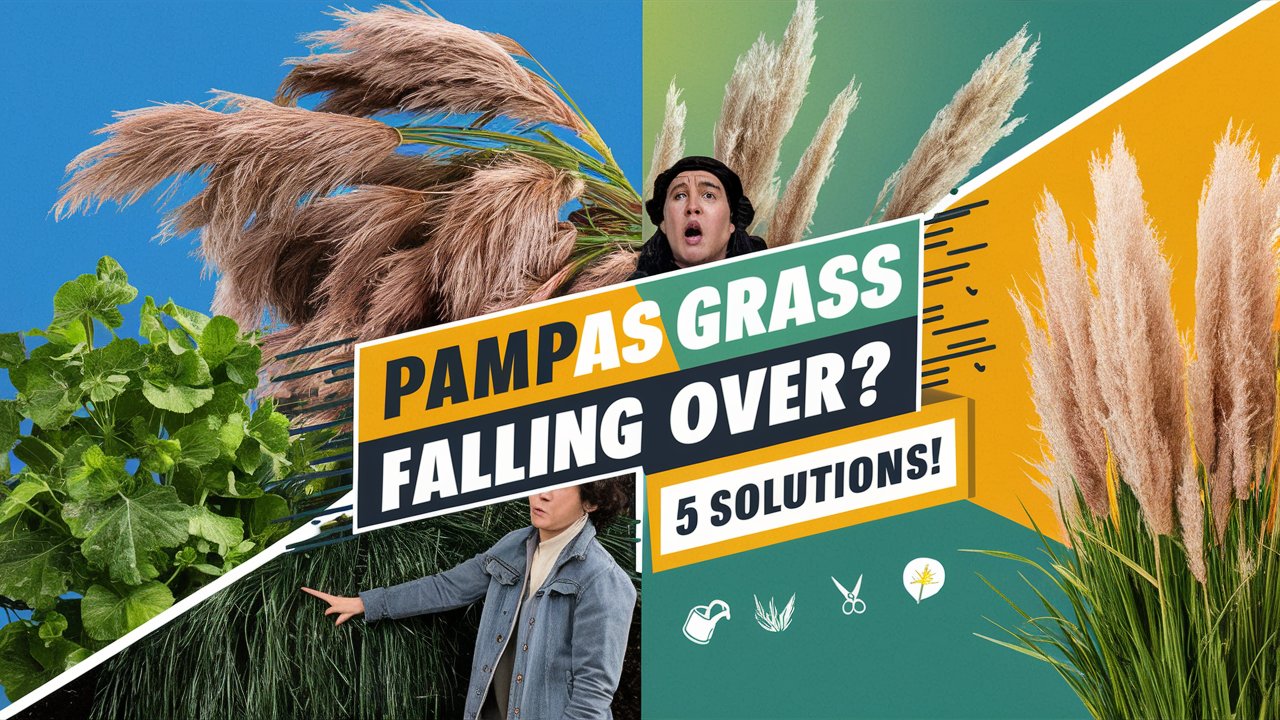Introduction
Why is my pampas grass falling over? This question plagues many gardeners who admire the tall, feathery plumes of pampas grass (Cortaderia selloana). Understanding the reasons behind this issue is crucial for maintaining the health and beauty of your plants.
Understanding Pampas Grass
Pampas grass is a perennial grass native to South America, celebrated for its impressive height and fluffy plumes. It thrives in well-drained soil and full sun, making it a favorite in ornamental gardening. However, its grandeur can sometimes be marred by a tendency to fall over.
Why is My Pampas Grass Falling Over?
Weak Root System
A weak root system is one of the primary reasons why pampas grass falls over. If the roots haven’t established themselves properly, they can’t anchor the plant effectively, leading to instability.
Overwatering
While pampas grass needs regular watering, overwatering can cause the soil to become waterlogged. This weakens the root structure and makes the plant more susceptible to falling over.
Heavy Plumes
The beautiful plumes that make pampas grass so desirable can also be its downfall. When these plumes become too heavy, especially after rain, the stems might not be able to support them.
Wind and Weather
Strong winds and adverse weather conditions can easily topple over tall plants like pampas grass. If your garden is exposed to frequent gusts, your plants might struggle to stay upright.
Lack of Pruning
Pruning is essential for maintaining the structure and health of pampas grass. Without regular pruning, the plant can become top-heavy and unbalanced, increasing the risk of falling over.
Solutions to Prevent Falling Over
Strengthen the Root System
To develop a strong root system, plant your pampas grass in well-drained soil and ensure it’s not planted too shallow. Adding organic matter to the soil can also promote root growth.
Proper Watering Techniques
Water your pampas grass deeply but infrequently. Allow the soil to dry out between watering sessions to prevent root rot and ensure the roots grow strong and deep.
Support Structures
Using support structures like stakes or garden ties can help stabilize your pampas grass. These supports should be placed early in the plant’s growth to provide the necessary support as it matures.
Pruning and Maintenance
Regular pruning helps manage the weight and balance of pampas grass. Trim back dead or overgrown foliage annually to maintain its shape and reduce the risk of toppling.
Wind Protection
Planting pampas grass in a sheltered location can protect it from strong winds. Alternatively, creating windbreaks with hedges or fences can reduce wind exposure.
Conclusion
By understanding the reasons behind the question, “Why is my pampas grass falling over?” you can take proactive steps to maintain the beauty and health of your plants. From strengthening the root system to providing proper support, these solutions will help keep your pampas grass standing tall.
FAQs
Q1: Why does my pampas grass fall over after heavy rain?
A1: Heavy rain can weigh down the plumes of pampas grass, making them too heavy for the stems to support. Ensuring proper drainage and pruning can help mitigate this issue.
Q2: Can overwatering cause my pampas grass to fall over?
A2: Yes, overwatering can lead to waterlogged soil, which weakens the root system and makes the plant more susceptible to falling over. Water your pampas grass deeply but infrequently to avoid this problem.
Q3: How can I strengthen the root system of my pampas grass?
A3: Planting your pampas grass in well-drained soil and adding organic matter can help develop a strong root system. Proper watering and avoiding shallow planting are also crucial.
Q4: Is pruning necessary to prevent pampas grass from falling over?
A4: Regular pruning is essential to maintain the structure and balance of pampas grass. Trim back dead or overgrown foliage annually to reduce the risk of the plant becoming top-heavy and falling over.


